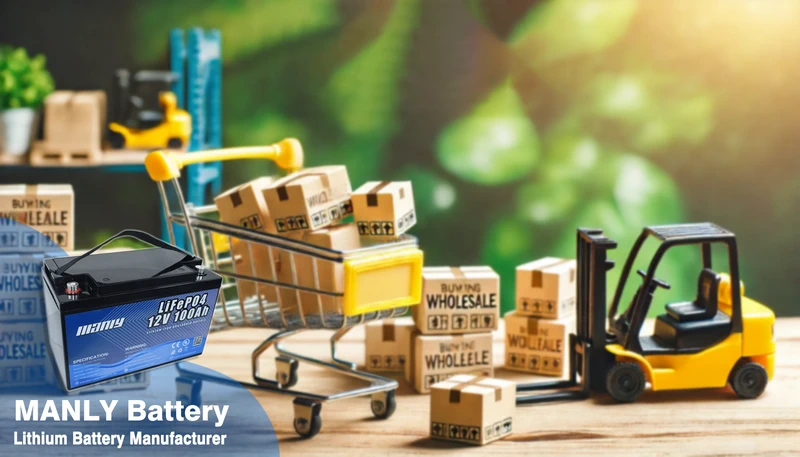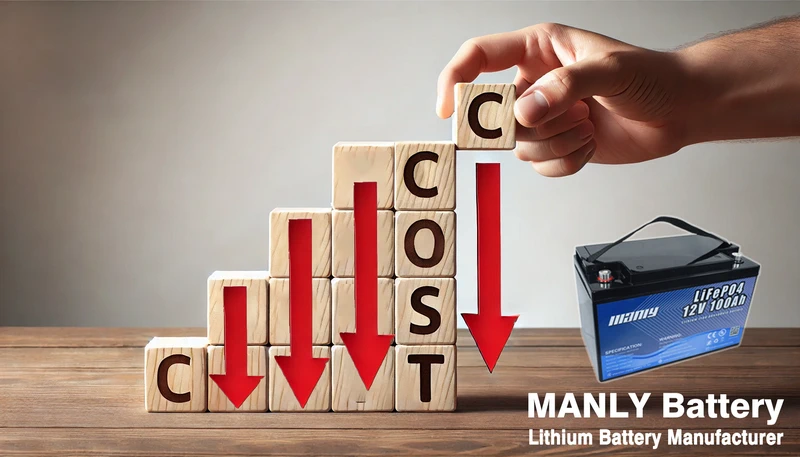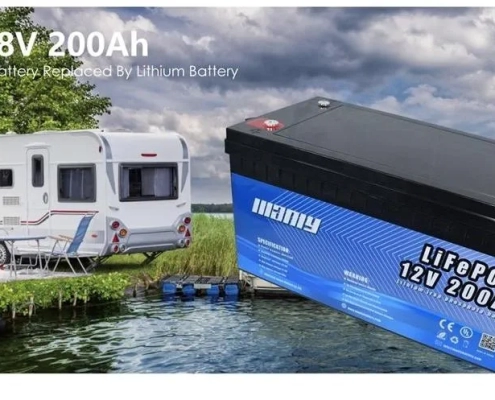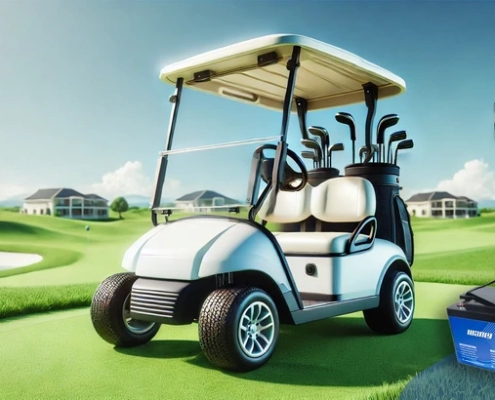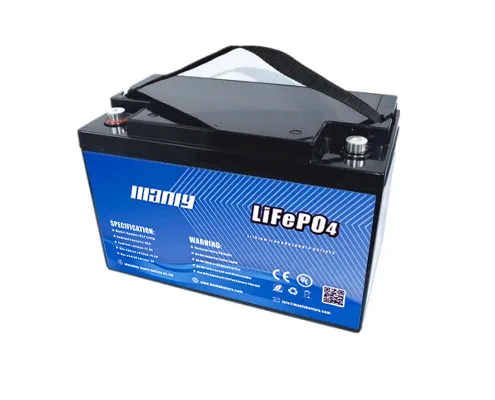How to Buy Directly from Manufacturers in China: A Guide for Lithium Battery Purchasers
Table of Contents
- How to Buy Directly from Manufacturers in China: A Guide for Lithium Battery Purchasers
- Steps to Buy Directly from Manufacturer in China for Lithium Battery
- 1. How to Find a Manufacturer in China for Lithium Battery
- 2. Reaching Out to Suppliers for Quotes
- 3. Requesting and Testing Lithium Battery Samples
- 4. Negotiating Wholesale Prices for Lithium Batteries
- 5. Coordinating Shipping for Products from China
- 6. Understanding Customs and Import Fees on Lithium Batteries
- Pros and Cons of Buying Lithium Batteries Directly from China
- Payment Methods for Buying Lithium Batteries from China
- Final Tips for Successfully Purchasing Lithium Batteries from China
- Conclusion
- FAQ
- Hot Search
- Learn More About Battery
In today’s global marketplace, buying directly from manufacturers in China offers significant benefits for businesses seeking cost-effective products and reliable supply chains. By choosing to buy directly from manufacturer, companies can eliminate intermediaries, reducing costs and gaining greater control over product quality and customization. This approach is particularly valuable in industries like electronics, renewable energy, and electric vehicles. China, with its well-established manufacturing infrastructure, is a leader in producing a wide range of products, including lithium batteries. This guide will walk you through the process of how to buy direct from China, focusing on the steps to take and the benefits of sourcing directly from lithium battery supplier in China, ensuring that businesses can secure high-quality products at competitive prices.
Why Buy Directly from Manufacturers in China for Lithium Batteries?
1. Advantages of Sourcing Directly from China
China’s manufacturing industry is globally recognized for its cost-effective production capabilities and advanced technology. According to the United Nations Industrial Development Organization (UNIDO), China accounted for 28.37% of global manufacturing output in 2021, making it the largest manufacturing hub in the world. By purchasing directly from manufacturers, businesses can eliminate middlemen, which results in lower prices—often significantly cheaper than sourcing from third-party distributors or other regions.
Direct sourcing also facilitates faster communication with manufacturers, leading to better control over product specifications and more reliable delivery schedules. A 2022 survey by McKinsey & Company found that 66% of companies that directly sourced from manufacturers in China reported improvements in lead times and communication efficiency compared to relying on intermediaries.
Furthermore, China’s advanced infrastructure, including its extensive railway networks and seaports, ensures timely deliveries. In 2022, China’s logistics sector handled over 15 billion metric tons of cargo, reflecting the country’s capacity to manage large-scale orders efficiently.
These advantages are especially critical for industries such as renewable energy, electric vehicles, and consumer electronics, where cost efficiency and product reliability are paramount. For instance, a report by the International Energy Agency (IEA) in 2023 highlighted that China manufactures and exports over 70% of the world’s solar panels, demonstrating the cost-effectiveness and technological leadership China holds in these sectors.
2. Lithium Batteries: China’s Leading Export
Lithium batteries have become one of China’s key export products, driven by the global demand for clean energy solutions and electric vehicles. China is the world’s largest producer of lithium batteries, accounting for over 60% of global production. As industries around the world shift toward electric and renewable energy systems, China remains at the forefront of battery technology innovation.
By buying lithium batteries directly from China, businesses can access cutting-edge technologies and competitive pricing. Whether for electric vehicles, energy storage, or consumer electronics, sourcing directly from Chinese manufacturers ensures businesses receive newly produced batteries, avoiding the risks of outdated stock or inflated prices found through third-party platforms.
Steps to Buy Directly from Manufacturer in China for Lithium Battery
1. How to Find a Manufacturer in China for Lithium Battery
Searching for Lithium Battery Suppliers via Search Engines
For businesses that may not have the resources to visit China, using search engines like Google can be a highly effective way to find reliable lithium battery supplier.
One of the biggest advantages of this approach is that established, reputable manufacturers often have their own official websites. By placing orders directly through these sites, you can benefit from high-quality batteries at competitive prices, without the extra costs typically associated with third-party platforms. For example, MANLY Battery, a professional lithium battery manufacturer based in China, has an official website where businesses can interact directly with customer service representatives available 24/7. This direct communication ensures that you can easily get the specialized information needed to make informed decisions, place orders, and access new, custom-made batteries.
In contrast to third-party platforms, where stock may be old or accumulated, ordering directly from a manufacturer’s website ensures you’re receiving newly produced batteries tailored to your needs, with no hidden fees or additional markups.
This search engine-based approach gives businesses the flexibility to compare different suppliers, evaluate product offerings, and negotiate directly for the best deals, all while avoiding the extra layer of middlemen.
Using Online B2B Marketplaces to Find Suppliers
Platforms like Alibaba and Made-in-China connect buyers with verified lithium battery manufacturers. Use filters to refine searches based on certifications, minimum order quantities, and product specifications. Many platforms also offer trade assurance programs to protect your purchases.
Attending Trade Shows to Meet Lithium Battery Manufacturers
Trade shows provide face-to-face interaction with suppliers, allowing you to inspect products firsthand. Events like the Canton Fair or Hong Kong Electronics Fair are excellent venues for discovering reliable manufacturers and establishing trust.
2. Reaching Out to Suppliers for Quotes
Once potential suppliers are identified, contact them to request detailed quotes. Clearly outline your requirements, including battery specifications, quantities, and expected delivery timelines. Transparent communication is essential to avoid misunderstandings. Request itemized pricing, covering the product, shipping, and any additional fees.
3. Requesting and Testing Lithium Battery Samples
Before placing a bulk order, always request product samples. This allows you to assess the battery’s performance, durability, and compliance with safety standards. Testing samples ensures the product aligns with your requirements and minimizes risks associated with bulk orders. Note that some suppliers may charge for samples, including shipping costs.
4. Negotiating Wholesale Prices for Lithium Batteries
Negotiation is a critical step in buying directly from manufacturers. Discuss pricing based on order volumes, with the understanding that larger quantities often result in lower unit costs. Negotiate payment terms as well—common practices include a 30% deposit upfront and the remaining 70% before shipment. Ensure all agreements are documented to avoid disputes.
5. Coordinating Shipping for Products from China
When sourcing products from China, businesses must carefully consider their shipping options to ensure timely delivery and cost-effectiveness. Shipping logistics can vary depending on the product type, weight, urgency, and destination, and there are several methods to choose from:
Shipping Options from China
- Air Freight: This is the ideal choice for urgent orders that need to be delivered quickly. While air freight is faster, it comes with a higher price tag, especially for heavier shipments. The cost for air freight typically ranges between $5-$7 per kilogram for shipments between 200-500 lbs. Air freight can usually be delivered in 7-10 days, with an additional 1-5 days for customs clearance. However, businesses must be aware of documentation fees (around $200-$300) and customs brokerage fees ($150-$200).
- Sea Freight: More cost-effective for large orders, sea freight is commonly used for bulk shipments. Though slower, sea freight offers savings for heavier products. The shipping time can range from 20-35 days, with an additional 1-5 days for customs clearance. The cost for sea freight is usually under $1 per kilogram for shipments over 500 lbs, but similar to air freight, customs fees and documentation costs are additional.
- Freight Forwarders: Freight forwarders are professional service providers who can handle all logistics, including booking transportation, managing customs clearance, and ensuring timely delivery. They are invaluable for businesses that are unfamiliar with the complexities of international shipping. A freight forwarder can simplify the process and provide expertise in managing the costs and risks involved in international shipments.
Above figures are estimates and can fluctuate. For more precise quotes, businesses should contact freight companies directly.
Shipping Lithium Batteries from China
When purchasing lithium batteries from China, special considerations must be made due to the hazardous nature of these products. Lithium batteries require careful handling, packaging, and transportation, which is why choosing the right shipping method and ensuring compliance with international regulations is essential.
- Air Freight for lithium batteries is often restricted due to the safety concerns surrounding battery transportation. Many airlines and freight carriers have specific protocols for shipping lithium-ion batteries, which could incur additional handling charges or require special permits.
- Sea Freight for lithium batteries is generally more common, especially for bulk orders. Sea freight is slower, but it is the most economical option when shipping large quantities of lithium batteries. However, shipping lithium batteries by sea requires compliance with regulations, such as proper labeling and documentation to avoid delays at customs.
MANLY Battery’s Shipping Information
MANLY Battery, as a well-established lithium battery manufacturer in China, offers flexible shipping options to cater to different business needs. Below are the general logistics options available for MANLY Battery shipments, though it’s important to contact their customer service for specific shipping terms.
| Shipping Method | Weight Limit | Cost | Shipping Time | Notes |
|---|---|---|---|---|
| Air Courier | 150 lbs or less | $10/kg+ | 10-15 Days | Normally quoted door to door. No customs broker needed (though additional charges may apply if shipment exceeds $800). |
| Air Freight | 200-500 lbs | $5-$7/kg | 7-10 Days + 1-5 Days for Customs Clearance | Make sure shipment terms are FOB. Expect $200-$300 in documentation fees and $150-$200 for customs brokerage fees. |
| Sea Freight | 500+ lbs | <$1/kg | 20-35 Days + 1-5 Days for Customs Clearance | Make sure shipment terms are FOB. Expect $200-$300 in documentation fees and $150-$200 for customs brokerage fees. |
For more specific and up-to-date information, businesses should contact MANLY Battery’s customer service team, available 24/7, to ensure that shipping arrangements are tailored to their needs.
6. Understanding Customs and Import Fees on Lithium Batteries
Importing lithium batteries involves customs duties and compliance with import regulations. In the U.S., goods valued under $800 are typically duty-free, but higher-value shipments may incur tariffs based on their HTS code. Collaborate with your freight forwarder or customs broker to ensure smooth clearance and avoid unexpected fees.
Pros and Cons of Buying Lithium Batteries Directly from China
Pros
- Cost Savings: China is known for its cost advantages in manufacturing due to lower labor costs and economies of scale. According to MarketsandMarkets, the global lithium-ion battery market size is projected to grow from USD 130 billion in 2024 to USD 350 billion by 2033, a compound annual growth rate (CAGR) of about 12%. This growth is driven by cost-effective manufacturing in China, which significantly lowers the price of lithium batteries.
- Direct Access: Purchasing directly from manufacturers allows businesses to negotiate custom product specifications, bypassing middlemen and ensuring a tailored product. This can be particularly beneficial for companies in sectors such as electric vehicles (EV) or renewable energy, where specific battery requirements are crucial for performance.
- Variety: China’s manufacturers offer a wide range of lithium battery models and technologies. As of 2023, China’s lithium battery production accounted for approximately 70% of the global market share, according to Statista. This vast supply allows buyers to access the latest technology, from standard lithium-ion to advanced solid-state and lithium-sulfur batteries.
Cons
- Quality Control: Ensuring consistent product quality can be challenging when sourcing directly from manufacturers, especially when dealing with new or unverified suppliers. However, certifications such as ISO 9001 and CE are available from reputable manufacturers, offering some assurance of quality.
- A report from Business Insider notes that the rapid scaling of battery production in China has led to occasional inconsistencies in battery quality across suppliers, particularly with small, less established manufacturers.
- Communication Barriers: Language differences can lead to misunderstandings and logistical challenges. However, most large Chinese suppliers have English-speaking staff and established communication channels to mitigate these issues. Online platforms like Alibaba and Made-in-China offer real-time support to ease communication barriers, which is crucial for smooth transactions.
- Longer Lead Times: Shipping from China often involves longer lead times due to international freight logistics. For example, shipping lithium batteries by sea typically takes around 30-60 days, depending on the origin and destination ports. This extended timeline is further compounded by customs clearance processes.
Payment Methods for Buying Lithium Batteries from China
When buying lithium batteries in bulk, consider these payment methods:
- Bank Transfers (T/T): Common for international trade, requiring partial payment upfront.
- Letter of Credit (L/C): Offers security for large transactions.
- Escrow Services: Platforms like Alibaba provide secure payment options to protect buyers and sellers.
Final Tips for Successfully Purchasing Lithium Batteries from China
- Conduct thorough research on potential suppliers.
- Prioritize communication to ensure mutual understanding.
- Test product samples before committing to bulk orders.
- Document all agreements to avoid disputes.
- Work with experienced freight forwarders for smooth logistics.
By following these steps, you can confidently navigate the process of buying lithium batteries directly from China, ensuring quality, reliability, and cost-efficiency for your business.
Conclusion
Buying directly from manufacturers in China can significantly improve a business’s supply chain efficiency and profitability. By eliminating middlemen and negotiating directly with lithium battery manufacturers, businesses can benefit from lower costs, faster lead times, and custom solutions that meet their specific needs. Whether you’re sourcing lithium batteries for electric vehicles or energy storage solutions, this method provides access to cutting-edge technology and global expertise. With careful planning and research, buying directly from China offers businesses the opportunity to tap into China’s manufacturing strengths, ensuring reliable products at the best possible prices.
FAQ
1. How to buy directly from a manufacturer in China?
The best method to buy directly from a manufacturer in China is by finding the official website of a lithium battery manufacturer. This allows you to bypass intermediaries, ensuring you receive high-quality products at competitive prices. By purchasing directly from the manufacturer’s website, you can interact with their customer service team, request quotes, and negotiate pricing and terms.
Alternatively, you can also use online platforms like Alibaba, Made-in-China, or attend global trade fairs to identify potential manufacturers. Once you find reliable manufacturers, contact them directly through their official websites, request quotes, and ensure you clarify payment methods, shipping options, and production timelines before finalizing the order. It’s also helpful to request samples and verify certifications to ensure the quality of the product before making a bulk purchase.
2. How do I find direct suppliers in China?
To find direct suppliers in China, you can use B2B platforms like Alibaba, Global Sources, and Made-in-China. These platforms allow you to filter suppliers based on product categories, certifications, and customer reviews. Another way is by attending trade shows such as the Canton Fair, where you can meet manufacturers face-to-face. Additionally, using search engines like Google to find lithium battery manufacturers with their official websites can connect you directly to reputable suppliers, bypassing third-party platforms. Networking through industry connections or forums can also help you discover reliable suppliers.
3. How do I connect with manufacturers in China?
To connect with manufacturers in China, you can start by searching for their official websites through online directories or B2B platforms. Many Chinese manufacturers have customer service teams available 24/7 to answer questions and provide product information. You can also reach out via email, phone, or messaging through platforms like Alibaba. For more personalized interactions, consider attending trade shows or exhibitions in China, where you can meet manufacturers in person. Direct communication ensures a better understanding of product specifications, quality control, and terms of sale.

